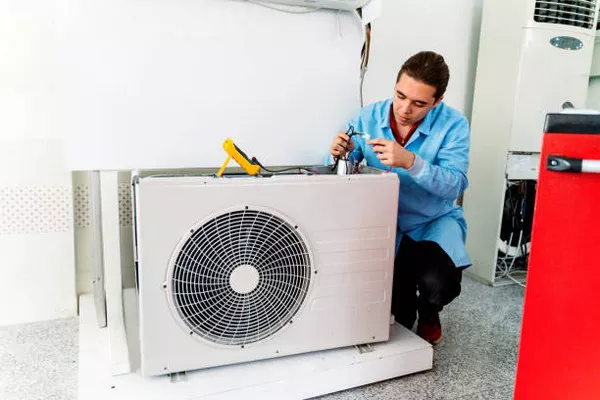In the realm of modern climate control technology, compressor-based air conditioning (AC) systems play a pivotal role in regulating indoor temperatures and enhancing comfort in various settings, from homes to commercial spaces. These systems utilize a compressor as a central component to facilitate the cooling process. This article delves into the mechanics of compressor AC systems, their types, working principles, efficiency considerations, and their significance in today’s HVAC (Heating, Ventilation, and Air Conditioning) landscape.
Evolution and Importance of Compressor AC Systems
Compressor-based air conditioning emerged as a significant technological advancement in the mid-20th century, revolutionizing indoor climate management. Before the advent of AC compressors, cooling methods relied on simpler technologies like evaporative cooling. The introduction of compressor AC systems enabled efficient cooling through refrigeration cycles, setting the stage for modern comfort cooling.
Today, compressor AC systems are integral to residential, commercial, and industrial sectors worldwide. They provide precise temperature control, essential for maintaining comfortable indoor environments irrespective of external weather conditions.
Components of a Compressor AC System
A typical compressor-based air conditioning system consists of several key components:
Compressor: This is the heart of the system, responsible for compressing the refrigerant gas, raising its temperature and pressure.
Condenser Coil: The high-pressure, high-temperature refrigerant gas from the compressor passes through the condenser coil, where it dissipates heat to the surroundings and condenses into a liquid.
Expansion Valve: This component regulates the flow of high-pressure liquid refrigerant into the evaporator coil.
Evaporator Coil: Here, the low-pressure liquid refrigerant absorbs heat from indoor air, causing it to evaporate and turn into a gas.
Refrigerant: The refrigerant is the working fluid that cycles through the system, undergoing phase changes to absorb and release heat efficiently.
Fan: Fans are used to circulate indoor and outdoor air across the evaporator and condenser coils, respectively.
Types of Compressor AC Systems
Compressor-based AC systems can be categorized into several types based on their design and operation:
Split Systems: These are the most common AC systems, consisting of separate indoor and outdoor units. The indoor unit contains the evaporator coil and blower, while the outdoor unit houses the compressor, condenser coil, and fan.
Packaged Systems: In these systems, all components are housed in a single outdoor unit, often placed on the roof or on a concrete slab near the building.
Centralized Systems: Typically used in larger buildings, these systems feature a centralized plant with multiple air handlers distributing cooled air throughout the building.
Ductless Mini-Split Systems: These systems consist of individual air handlers (evaporators) mounted on walls or ceilings, connected to an outdoor unit via refrigerant lines. They offer flexibility and zoning capabilities.
How Compressor AC Systems Work
The operation of a compressor-based air conditioning system follows a thermodynamic cycle known as the vapor compression cycle. Here’s a simplified breakdown of the process:
Compression: The refrigerant gas is compressed by the compressor, raising its temperature and pressure.
Condensation: The hot, high-pressure refrigerant gas flows into the condenser coil, where it releases heat to the outside environment and condenses into a high-pressure liquid.
Expansion: The liquid refrigerant passes through the expansion valve, reducing its pressure and temperature as it enters the evaporator coil.
Evaporation: In the evaporator coil, the low-pressure liquid refrigerant absorbs heat from indoor air, causing it to evaporate into a low-pressure gas.
Return to Compressor: The low-pressure gas returns to the compressor to repeat the cycle.
Efficiency Considerations and Environmental Impact
Efficiency is a crucial aspect of compressor AC systems, both in terms of energy consumption and environmental impact. Several factors influence the efficiency of these systems:
SEER (Seasonal Energy Efficiency Ratio): This rating indicates the efficiency of the system over an entire cooling season.
Type of Refrigerant: The choice of refrigerant impacts the system’s efficiency and environmental impact. Modern systems are transitioning towards environmentally friendly refrigerants with lower global warming potential (GWP).
System Design and Sizing: Proper system design and sizing are essential for optimizing efficiency and performance.
Efforts are underway to develop more efficient compressor AC systems through technological advancements and regulatory measures aimed at reducing energy consumption and greenhouse gas emissions.
Significance and Future Trends
Compressor AC systems continue to be indispensable in maintaining comfort and productivity across various sectors. However, ongoing trends suggest a shift towards more sustainable and energy-efficient solutions:
Smart HVAC Technology: Integration of smart controls and IoT (Internet of Things) capabilities to optimize energy usage and improve comfort.
Heat Pump Systems: Dual-function systems that can provide both heating and cooling by reversing the refrigeration cycle, offering year-round climate control.
Renewable Energy Integration: Increasing adoption of renewable energy sources such as solar power to offset energy consumption.
SEE ALSO How Much Does A New Air Conditioner Compressor Cost
Conclusion
Compressor-based air conditioning systems represent a cornerstone of modern HVAC technology, enabling precise and efficient cooling in diverse environments. Understanding their components, operation, and efficiency considerations is essential for both industry professionals and consumers seeking optimal indoor comfort while minimizing environmental impact. As technology evolves, we can anticipate further innovations aimed at enhancing the efficiency and sustainability of compressor AC systems, ensuring a more comfortable and eco-friendly future.

